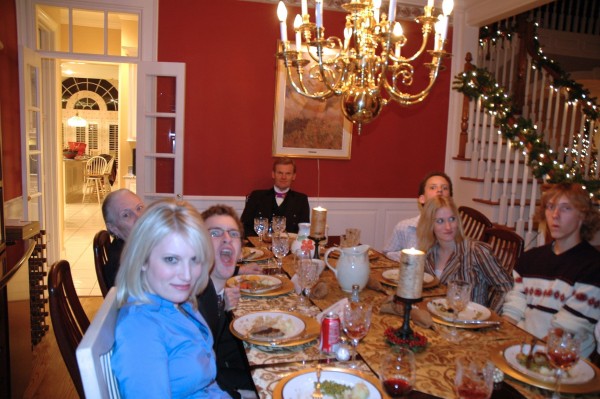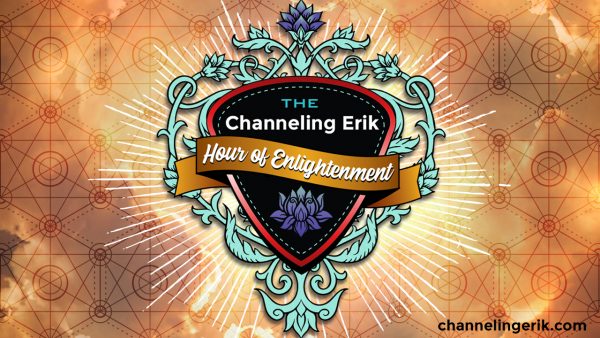As Thanksgiving approaches, I thought it’d be nice to concentrate on the concept of gratitude. I have one session on it with Jamie as Erik’s translator and another with Kim. Enjoy!
Me: Hello, Jamie!
Jamie: Hello!
Me: Hi, Erik! I love you, sweetie pie!
Erik: Hi, Mama. I love you, too.
Me: I’m going to have you sitting at the table—your picture—for Thanksgiving, as always, so I hope you’ll be around.
Erik: Absolutely.
Me: Okay. We’re going to talk about this upcoming holiday now. It’s such an important one for so many people because it has a lot to do with gratitude and the importance of it. Can you speak about the importance of the Thanksgiving table and what goes on around it?
Jamie laughs. God knows what he said.
Me: Oh boy. Already? Already? Seriously?
Jamie (Laughing): I know!
Erik: A lot of good nasty jokes happen around the dining room table. That’s very important. And burping and farting is a form of compliment to the meal, so that’s very important. Remember that.
Jamie: He’s just going on and on.
Erik: Hello to everybody who’s watching! Thanks for tuning in! This Thanksgiving is going to be super special seeing what’s happening in the world these days. A lot of us have time to reflect on who has come into the world and our lives be it human babies or animal babies and who has transitioned on, human or animal. Or plant.
Jamie: He throws that in at the last.
Erik: The Thanksgiving table is—
Jamie: I don’t think that’s a word!
Erik: The Thanksgiving table is—
Jamie: Oh my god, he’s using it again. I’ll say super special because that’s kind of what he means.
Erik: –a little bit beyond the dining room table that you have with the immediate family, because Thanksgiving gives you the perfect opportunity to invite people who normally don’t dine with you. The reason—
Jamie: Oh, is this like a history lesson?
Erik: The reason the table is so important is the food, the time and love and attention that was put into it and the nutrition, the comfort, but it can also be an excuse to put something in your mouth so that you don’t have to comment on anything. There’s this thing where we go around and say what we’re grateful for in the year and what we look forward to in the next year. If your family really isn’t into sharing shit like that because I know a lot of American families are like, “Grr. Let’s eat some turkey and watch some football!” Talk them into writing something down and putting it into a cup. Then everyone takes one and reads what it says. They don’t know who it’s from, but at least it gets said and an intent is put out at the table. On holidays like this, like birthdays, end of the year holidays—
Jamie: End of the year holidays?
Erik: Christmas, Hanukkah, Kwanza are big, big holidays where the dead rush to you, we poke and prod you, we leave little signs. For us, on our end, it’s such an enjoyment to see tradition continue. It’s disheartening to see some traditions stop because we’re no longer there.
(Pause)
Jamie: He’s rambling.
Erik: It’s pretty cool when it goes on even though maybe it’s not there thing, but there’s something special about repetition, and we don’t like to miss that shit so we show up. My mom, she puts my picture on the table. I don’t really get a plate of food or anything, but I’m included in the family affair. That’s all that matters to me. So me and my family, we got that thing going on. I know you can get something going on with your dead people.
That sounds really funny.
Me: Sometimes it’s hard during this holiday to remember when our loved one was sitting at the table and we grieve for them. Sometimes it gets a little worse, and when we grieve like that, sometimes we don’t feel like we have anything to be grateful for. So what can we say to those grievers?
Erik (Pointing a finger): If you’re one of those people right here, right now who are stuck in that moment, get your ass up right now—
Jamie laughs.
Me: Uh oh.
Erik: –and get yourself some paper and a pen. Then start writing down all the things that you are going to be grateful for during that Thanksgiving dinner. Do it now, because in the moment, you might want to wallow in your grief because your sweetheart’s not there or your son, your daughter, your mom, then you need to honor that you’re going to do that shit. You can already feel it coming on, right?
Me: Oh, yeah.
Erik: You think about it and you’re like, “No, I’m not going to do that,” but then the times comes and you’re like, “Oh, I didn’t expect to cry and now I have to disappear,” and you totally ditch the fucking dinner because you’re processing your grief. Whatever you decide to do is what you need to do, but if you think you’re going to end up in that boat, go ahead and write down these things you’re grateful for in advance and then give them to your family. Give them to the people you invited around your table or who invited you around their table. So this way, when you’re in that moment trying to understand what your new tradition is or what the new shape of your family looks like—
Jamie tears up unexpectedly.
Erik: –they will know where you’re coming from and what you’re grateful for. A lot of people feel like if they can’t bring something positive to a holiday, they’re the shit hole or they’re the asshole, that they’re bringing everybody down. Get over it! You can’t bring anybody down. You can’t make anybody depressed. You can’t make anybody grieve with your ass. Can’t do it. They’re going to respond to you in the way that they need to, and most likely they’re going to be like, “Do what you need to do. We’re here for you.” So if you feel like you need to bring this balance, this positive and this grief that might come on, write the letters, the notes in advance to get them out. Then watch how it changes the situation. Then people might know how to engage with you a little bit more and say, “I got your note. What you said about me or what you said about what your year is going to be like, I really loved that. Why did you come up with that?” So you have something to talk about that’s not based on the one that’s transitioned.
Jamie: I like that idea.
Me: It’s a good one! So the note, you’re acting like it’s to somebody. Is it?
Erik: Yeah, I would write one to everybody who’s at the table.
Me: Oh, I see. So you’re writing something to each person at the table. Got it.
Erik: Or, if it’s one letter that you want to write, I’d copy it, put it in envelopes and put everybody’s name on it. That way, everyone has their own copy and they don’t have to go, “Hey, Aunt So-and-So wrote this. She’s grieving. You need to read this.”
Me: Oh, okay.
Erik: Everybody will read it and see where you’re coming from and maybe what your fear was around Thanksgiving and understand you a little bit better without you going, “Oh, you know, I don’t want to talk about Steven. He just passed away.”
Me: Makes sense. It’s hard on the day. Let’s talk about gratitude and its importance.
Erik (throwing out an arm and saying, in a boisterous tone): GRATITUDE!
Then Erik takes a bow.
Me: I’m grateful for you, Erik.
Erik: What do you want to talk about?
Me: Just the importance of gratitude. Talk about the spiritual perspective, whatever you want.
Erik: Why is giving gratitude important. I don’t want anyone to fall into the “Gratitude is good. Gratitude is needed. Gratitude is important” thing because I’m trying to get you out of the fucking mindset of being human and deciding one thing is needed and the other isn’t. Everything is needed. Everything is. So gratitude, the importance of it, what it adds to the recipe of life is that it shows that you acknowledge the connection of what you have or what you had to whoever or whatever it is. Because we can show gratitude to a person; we can show gratitude to an item, and we can show gratitude to a situation. So it’s not just beings. It also shows that energetic value, your soul, that you’re holding this life that you’re living in a sacred space. Sacred space is about expressing gratitude, holding space for the awareness of connections and for those of you who don’t dig all the fucking spiritual language—
Jamie laughs.
Erik: –sacred space is like holding awareness of things like coincidences, luck, bright ideas. You know we can make the terms really dry or we can make them really woo-woo, but it’s showing that acknowledgement. We get down to living energy—all energy is living—when we tend to a plant, talk to it, water it, care for it, we’re showing awareness and the plant grows. If we ignore the plant and don’t give it the attention or care, don’t show gratitude or nurture it, the plant dies. Same with people, babies, animals. If we don’t show attention and awareness, then the outcome is quite different. So taking the time for gratitude, which is the acknowledgment of—
Jamie: So it’s a very heady thing?
Erik: Yeah, you can go heady with that. It’s the acknowledgement of the connection to you and who, what thing or what situation is providing you feedback.
Me: So gratitude is an energy that’s sustenance to other things, people living creatures and situations. It’s like that Dr. Emoto experiment where he gave love and gratitude to a jar of rice and water and it turned into Sake. Yum. But the one he ignored turned all rotten. Same with the one he said mean things to. So let’s talk about that. When you express gratitude, either outwardly or to yourself, that must be a form of energy that has a positive effect on people, living creatures, things and situations.
Erik: Yeah, it encourages growth. If you want to define that as positive, then hell, yeah.
Me: So if you’re grateful for your local firemen but you don’t express it except to yourself, will that help them in some way?
Erik: Yeah. You don’t have to fucking say it out loud. Energy isn’t ignited because (in a grand voice) WE SPEAK OUT LOUD!
Jamie laughs.
Erik: No, that’s just for ears. Most of our language is done internally. Our emotions aren’t spoken. They’re implied by tone and body language. There are so many other ways to communicate. But when we show gratitude with internal dialogue for those who are not around us, maybe they’re halfway around the world, they still receive it. I would just more specific about who you’re directing it to like, “The volunteer firemen from Station 29 in Atlanta.”
Me: Okay. Is there anything we should, as a collective, express gratitude for now?
Erik: Earth. Big fucking advocate for Earth!
Jamie chuckles.
Me: I hope so! Mama Earth.
Erik: Yes, we tend to ignore her. We take her for granted. We’re more apt to be grateful for our car for getting us places than for the earth for providing it with a surface to drive on. Strange, right? It’s such a constant that it’s invisible.
Me: Aw, that is so true. Anything else about gratitude?
Erik: Nope, ding.
Me: Anything else about Thanksgiving?
Jamie (laughing): Can we say this? This is not legal in every state. Can I still say it?
Me: Oh, yeah. Go ahead.
Erik: Why not choose to keep the wine and bottles of liquor off the table and pass around a joint instead and see how family responses to gratitude then.
Me: Oh, god.
Jamie: That’s Erik Medhus.
Me: You’re going to get me into trouble!
Erik: In the states where it’s legal! C’mon, man. Creating community, Mom.
Me: Okay, I don’t know about that! Anything you want for Thanksgiving? You want me to cook all the usual stuff? I’m the cook mostly because I don’t like the cleanup so everybody else has to do that. I’m off the hook when I cook. Oh, that’s a rhyme. Cool.
Erik: You cook for days, almost.
Me: Yeah, I do.
Erik: It’s insane.
Me: It’s fun though.
Jamie: He’s ordering all the usual, and he’s mentioning a chocolate dessert.
Me: Chocolate pecan pie? I mean, fudge pecan pie?
Jamie: Seriously? Does that really exist?
Me: Yeah!
Jamie: I’m going to look that up.
Me: My grandmother made an awesome one. Dang!
Jamie: The fudge pecan one is a yes. When you said chocolate, it kind of fell flat.
Me: Okay.
Erik: I love you guys out there! Show me some gratitude!
Jamie laughs.
Me: Yeah, everybody show Erik some gratitude. He gives so much to our lives.
Erik: If you show me some gratitude, I’ll swing by and fart across your table to let you know I’m there.
Me: Oh, no! He will, too! You know he can split himself off infinitely, guys. If you read his book, My Life After Death, you can find out how. Everybody pick up a copy of his book. It has a five star rating on Amazon. The reviews are amazing. Some people are saying it’s not only the best book they’ve read about spirituality but that it’s the best book they’ve ever read, period. So you’re missing out if you don’t get a copy. You’ll be really sad when you turn the last page and it’s ended. I’m so proud of my boy. You did a good job! I’m grateful for you.
Erik: I’m grateful for you, Mom. I’m grateful for everybody who’s watching and who’s part of the CE family and beyond.
Me: I’m grateful for you, Jamie. I’m grateful for all you viewers. Bye!
Jamie: Bye everybody. We love you!




